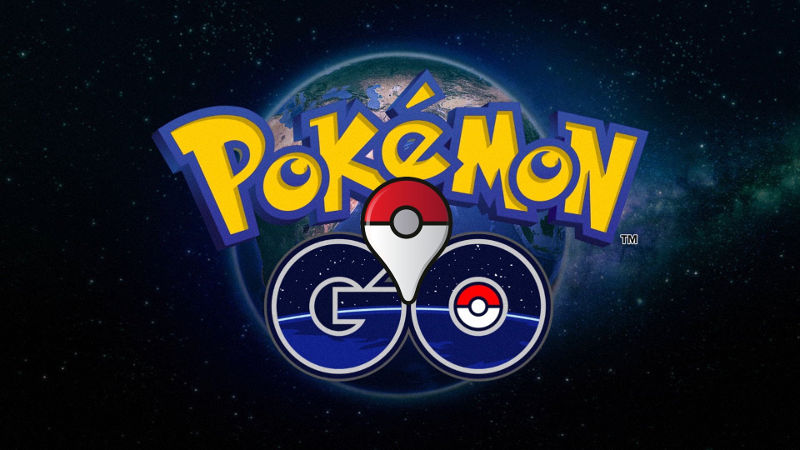Pokémon Go has proved incredibly successful in the US and other playing regions. The massive and rapid uptake by consumers of the augmented reality game resulted in its creator Nintendo stock jumped by 70 percent, boosting its market value from £13bn to £19.6bn. Within 8 day, the number of regular users has surpassed that of twitter. Growth this rapid has resulted in signup problems and delays as the server infrastructure has struggled to cope with new signups.
The “freemium” approach used in the game/app is a classic selling technique of free installation and in-game purchases of prizes in virtual money and virtual goods such as playable digital objects. Combining this with crowd participation and the local physical world with an open ended exploration of the physical world that draws you into an addictive gaming experience.
Privacy Concerns Or Just Scaremongering?
This rapid growth has created a Pokémon Go obsession and has resulted in privacy rumors that provoked near hysteria among some users. Several blog posts published an articles accusing Niantic Labs and Nintendo of overreaching in their full access to Google accounts.
The Pokémon Go app really did have an issue with their permissions implementation on iPhones. But Niantic Labs fixed the problems immediately and rolled out a new version of the application where they dialled down the requested permissions from full to much more reasonable information levels.
Rumors have continued, and have turned into an almost “privacy panic”. Throughout the week, some scared users even started to uninstall the app, not knowing exactly could leak online from their private data. It’s time to set the record straight.
Pokémon Go Privacy Concerns Just Privacy Concerns
Experts always recommend being careful when offering access to social media profiles. Social login permissions can provide third party companies with personal data, and they are difficult to control.
Pokémon Go privacy issue was in fact not a problem at all. The access permissions were negotiated between Nintendo and Google beforehand, and the information needed by the app was restricted to basic personal details such as phone numbers and email addresses.
The application on iPhone initially asked for unfettered access to a user’s Gmail account. This access was so that Niantic could get information such as email address and a phone number – but they didn’t restrict access to this information alone. Now they have restricted and clarified the information they needed. The issue proved to be only a mistake on the part of Google and Niantic and not an actual privacy error. Remember though, that the information had, and never will be used maliciously.
You should be aware though that Niantic Labs is going to be collecting your personal geolocation data, and there are still some real concerns in safety of walking around and interacting with the Augmented environment. Those concerns are really not new, if you use your device while crossing a road, you need to be aware of your surrounding. That hasn’t changed.
Pokémon Go does have the options for the avatar identity to anonymize the user, and it also presents issues over consent. Niantic labs have stated this in their Privacy Agreement and you must be aware and use the privacy/anonymity features if you want to remain anonymous.
Privacy Concerns for Minors
In the Pokémon Go terms of use policy Niantic Labs state that thy are complying with the Children’s Online Privacy Protection Act (COPPA) through the verification and consent process handled by PTC. This clearly places the consent control on the parent of children under 13 and the definition of data use of an authorized child. While it is arguable that this is consent that a child might grant without parental knowledge, this is no different to just about any other app out there.
Niantic Labs also has a Safe play clause, disclaiming liability from a range of injuries listed that may occur in the result of using the product. The clauses also explain Pokémon Go own or 3rd party cookies and web beacons that collect and display custom information and monitor the effectiveness of advertising within the app.
Immersion in the augmented virtual world does still have data protection concerns and the various usage clauses recognize this merging or blurring between what is real and what is augmented.
From a legal perspective, we’re breaking new ground and contract law is still evolving to cover these issues.
Physical Concerns for All Pokémon Go Users
Of far greater concern than the privacy issues are physical safety concerns, such as being distracted in the virtual world when an unplanned physical event happens. Be alert – keep your wits about you while interacting with the app and the real world. For some players this will have to become a new skill as they venture out of their basements or bedrooms and start using their devices in the ‘real world’. Learning where to recognize the difference between real and unreal is relatively easy – but over time it could become increasingly harder to distinguish between the two.
https://www.nianticlabs.com/terms/pokemongo/en
https://www.nianticlabs.com/privacy/pokemongo/en/

